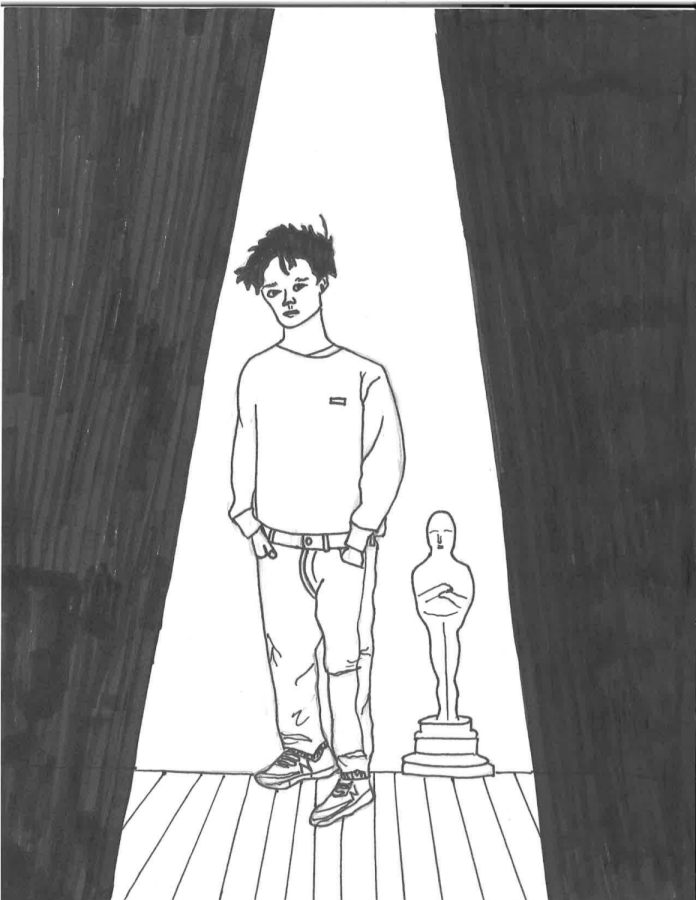Nepotism in film industry reaches fever pitch
Well-known but nepo-priveliged directors and actors, such as Jaden Smith, win awards from BET, NAACP and more, other new and upcoming talents get cast into the shadows.
This story was originally published in the Heights Herald print edition.
A ubiquity of “birth-bounded” fame and hereditary success is back in full swing.
Nepotism, which is most commonly known as being prevalent in the American film industry, is the act of favoritism by use of fame and influence. Several household names such as Micheal Jackson (son of R&B music mogul Joe Jackson), Johnny Depp, and many others have heavily benefited from nepotism, leading to an overbearing notoriety and celebrity. Monarchies, primarily the Great Britain Royal Family, also fall under an “elitist” branch of nepotism.
Nepotism is deeply rooted in the film industry in particular because of the ascendancy many family lineages hold in the entertainment business. In other words, success begets success. For children who’ve developed fame because of nepotism, it’s an unspoken expectation that their talent is automatically on par with their parents, even if (more times than not) this isn’t the case. Connections their parents have made in the industry also aid in their already successful careers simply from birth. This has led to countless upcoming actresses and actors to get overshadowed by lesser-qualified, but famous, “nepo-babies”. The inequity doesn’t simply end with the actors themselves—it also trickles down to directors and screenwriters as well. Authoritative roles in the film industry are scarce and distinct, with many award-winning actors and actresses dismissing work from less connected directors, often being from BIPOC, queer and women artists.
An overlying question to this never-ending sprawl of family-driven success is what casting directors can do to limit the effects of nepotism within the industry. What would the basic criteria entail, and how would it be successfully implemented? Would stricter criteria being put in place be viewed as too critical by those in the industry?
However, inheriting fame due to nepotism doesn’t automatically erase genuine talent. Sofia Coppola, three-time Oscar nominee who directed films such as “The Virgin Suicides” and “Lost in Translation”, who is daughter of Francis and Eleanor Coppola; both having extremely successful careers within screenwriting. We can’t deny the fact that having successful parents within the Hollywood scene hadn’t aided in her success, but she’s proven that she can truly contribute worthwhile art to the medium, not just coast by on her last name.
These exceptions, unfortunately, only prove the rule. Capitalism and the reliance on name recognition uprooting the creative marketplace has exceedingly increased over the years, as we’ve seen examples throughout decades of film-culture, but how can viewers shift the limelight to smaller budgeted films? Simply by watching. It isn’t a tedious, or excruciatingly hard process. Independent films are crucial because of the topics they entail that often get overlooked, such as social movements, LGBTQ+ topics, and many many more. “Moonlight” and “Rift” are both excellent and well-directed independent films that are easy to find and stream online.
Nepotism and its hard-to-break cycle of reinforcing the status quo isn’t going to end anytime soon, but being aware of those who are in positions of privilege because of it, and seeking out the works of those who get overshadowed by the mainstream, is the first and arguably most important step.

Makagbe Sanoe is the newest A&E Editor for The Heights Herald. This is her third year on the school newspaper. She’s a junior who enjoys literature...

Danquyen Le is an adventurous staff writer and podcaster who is always down to have fun and lives by the motto “You never know until you try!” She...







